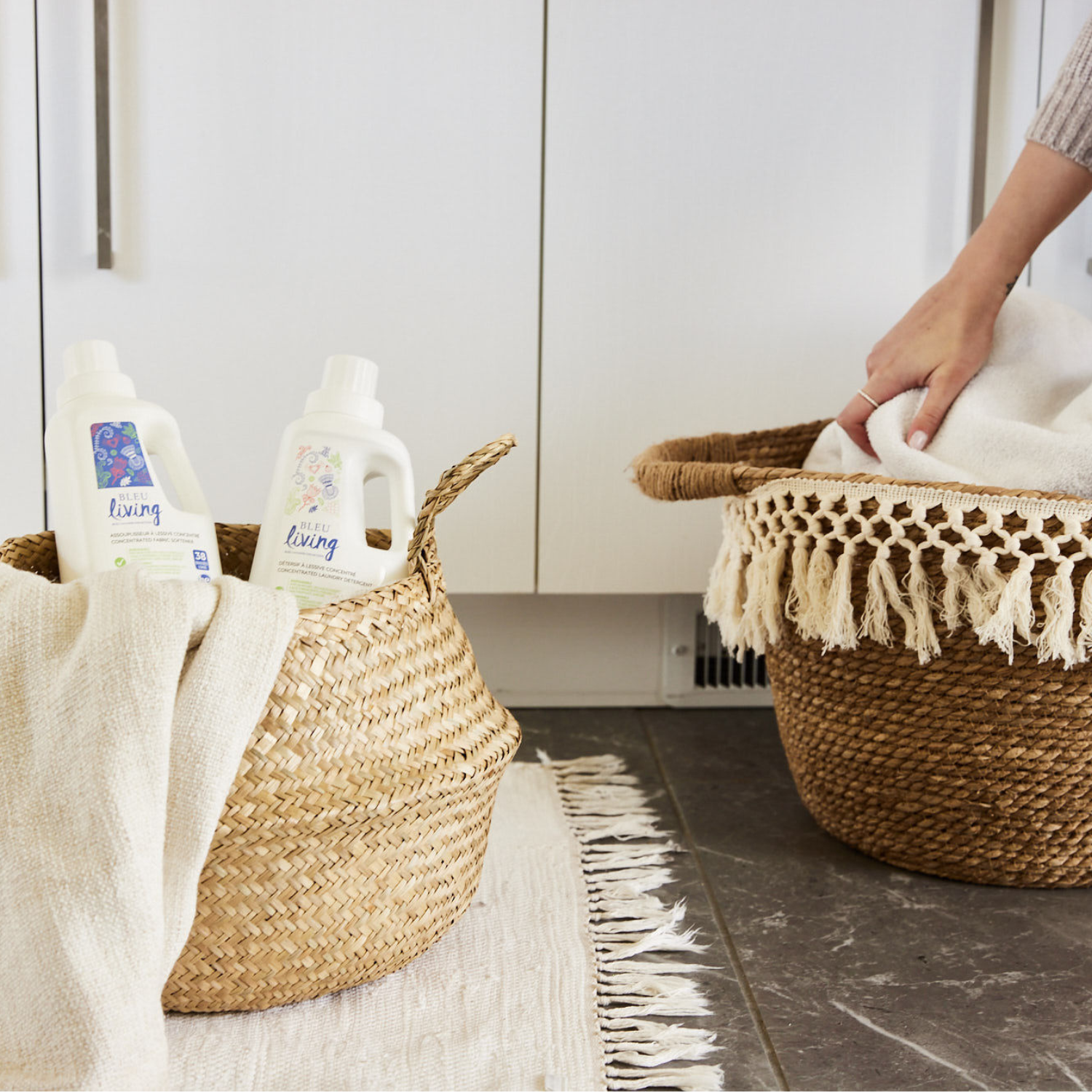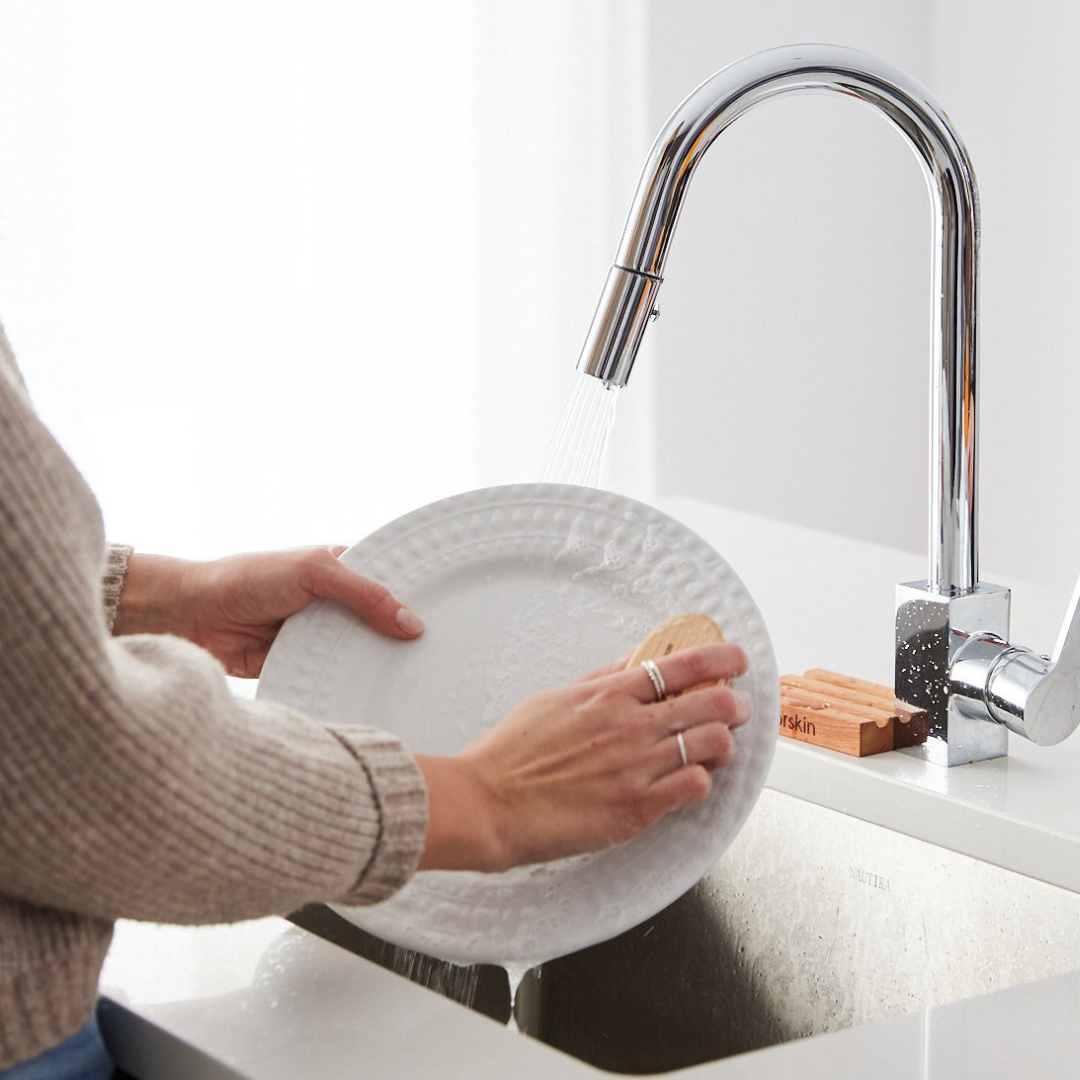Many household products unfortunately contain a significant number of chemicals. In addition to releasing toxic fumes into the air in your home, these ingredients also end up in water and soil, contributing to environmental pollution.
If you want to make wiser choices regarding the cleaning products you bring into your home, here is a non-exhaustive list of ingredients we recommend avoiding.
Phthalates
Phthalates are chemicals commonly used in perfumes and plastics. Unfortunately, these substances are associated with various health problems, including hormonal disruptions, reproductive disorders, and respiratory issues. Additionally, phthalates can contaminate water and soil when they are present in water-based products such as cleaning products. Their presence in the environment can disrupt aquatic and terrestrial fauna, compromising natural ecosystems. Moreover, phthalates can persist in the environment for long periods, contributing to long-term pollution. To avoid this ingredient, opt for products labeled as "phthalate-free" and choose natural fragrances like essential oils.
Bleaching Agents
Bleaching agents, such as bleach, are often used to disinfect and remove stubborn stains. However, they can also release toxic gases when they come into contact with other chemicals, and their excessive use can cause skin and respiratory irritations. Environmentally, chlorine can react with other organic compounds to form harmful by-products for health and the ecosystem. When discharged into water, these by-products can also be toxic to aquatic organisms. Opt for gentler alternatives like hydrogen peroxide or white vinegar that allow you to clean your home effectively without compromising your health and the environment.
Quaternary Ammonium Compounds
Quaternary ammonium compounds are antimicrobial compounds used in many disinfectants and multi-purpose cleaners. Although they may seem effective in eliminating germs, these substances are associated with respiratory problems and may contribute to bacterial resistance to antibiotics. Choose eco-certified products or make your own cleaners using natural ingredients to avoid quaternary ammonium compounds. Environmentally, they can have a negative impact on beneficial microorganisms in soil and aquatic ecosystems. Additionally, quaternary ammonium compounds are toxic to aquatic organisms, affecting food chains and ecosystem health.
Petrochemical Solvents
Petrochemical solvents, as the name suggests, are derived from petroleum, a non-renewable source that contributes to greenhouse gas emissions during manufacturing. When released into the environment, these solvents can contaminate drinking water sources, posing risks to human health and biodiversity. Petrochemical solvents such as xylene and toluene are often used in cleaning products to dissolve grease and stains. However, they can also be toxic to our health, with some even considered potentially carcinogenic. Opt for cleaners made from plant-based ingredients or use natural alternatives like baking soda and Marseille soap for equally effective and risk-free results.
If you want to learn more about toxic ingredients in household products and ways to avoid exposure to these components, we invite you to read our blog "Chemical Ingredients in Cleaning Products".





